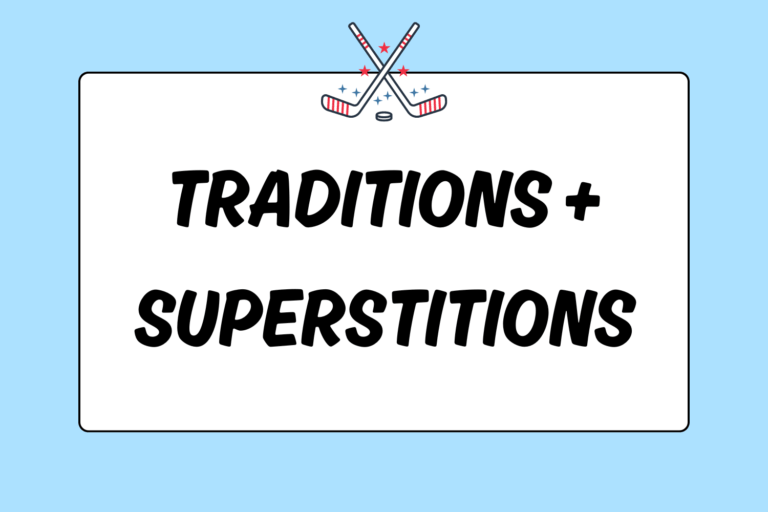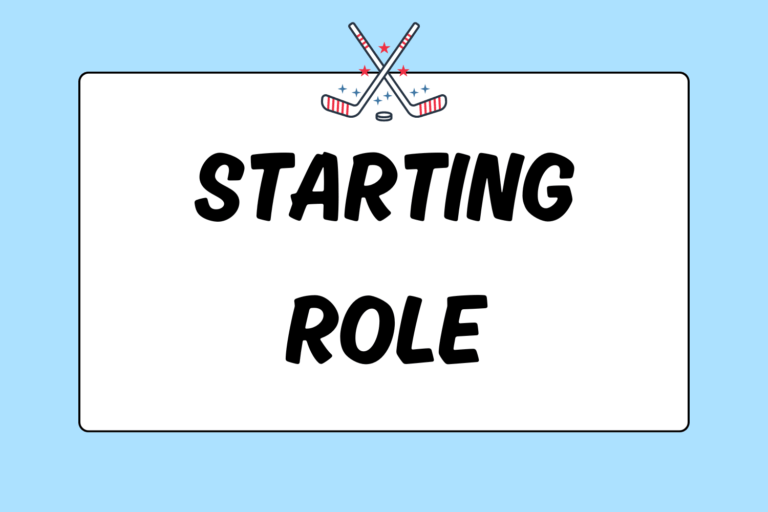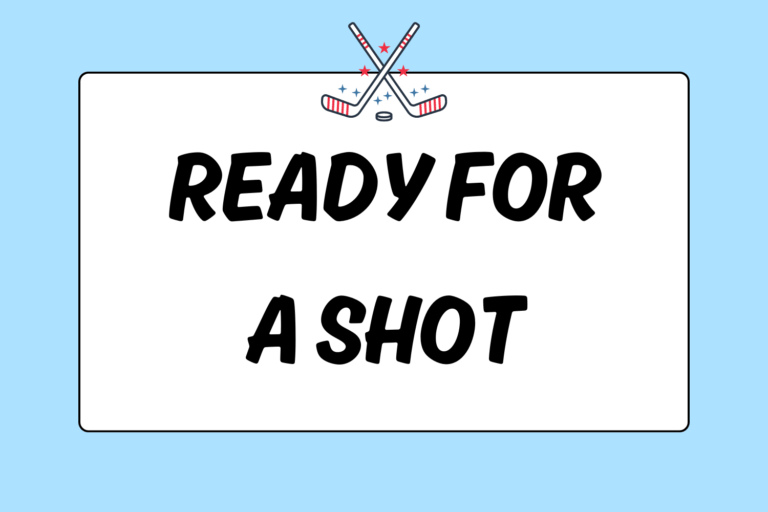Who knew the letter “C” could matter so much?
Many players will never don hockey’s most famous capital letter; nor will they ever have an “A” (for alternate captain) sewn onto the top-left corner of their jersey. Some players don’t mind the extra real estate on their team-issued gear, as they don’t want the extra responsibility that comes with being a captain. Other players dream of the day when they are appointed as captain by their coach or voted in to the position by their teammates.
Being a team captain is a privilege, and one that comes with loads of responsibility. It also comes with great respect and trust from teammates and coaches.
Contrary to the belief of many youth hockey players, the captain isn’t always the best player on a team. There are instances when the captain might even be one of the weaker players on the club. Regardless of their skill set, every captain should have a few specific personal qualities – confidence, strength of character, and the ability to speak up, among others.
This guide is for the players who do strive to be leaders. It includes tips to help you become a captain and advice for what to do if and when that letter is finally sewn on your jersey.
Earning the ‘C’
Be Vocal
This is a must if you want to be a captain, because much of the role has you constantly speaking to (and sometimes hollering at) your teammates. Don’t speak out unnecessarily or yell without purpose, but if you notice a teammate doing something wrong or inappropriate, let him know. On the other hand, if you see a teammate doing something positive, give him props and feel free to do it loudly.
Be Approachable
While a strong, confident demeanor is valuable, you should also be likeable and friendly. Teammates and coaches often go to the captain for help, advice, or even just conversation, and you never want anyone to be hesitant about approaching you.
Know the Game
Be a hockey master. Study the rules so you know when your team got the raw end of a referee’s call, and know the intricacies of the game’s fundamentals so you are always prepared to steer your teammates in the right direction.
Be Good at the Game
Yes, it was stated above that captains aren’t always the best players on the team. This is true, but being a solid player does help gain respect on and off the ice. If you are not one of the most talented players, work hard to make up for what you lack in specific skills. And if you are one of the best players on the team, use your talent as a constant example of how quality, team-oriented hockey is played.
Be a Leader
“As a captain, I think it’s important that the players really know who you are, and what you stand for, what your beliefs are, and to be consistent in those if things are going good or things are going bad.”
Mark Messier
NHL Hall-of-Famer
This one really should come with an asterisk, because leadership is often a natural, innate characteristic. If you don’t want to lead and/or feel like you are trying hard to do so, or if you are uncomfortable in any kind of public position, take a step back to evaluate whether being a captain is really for you. It’s perfectly fine if you decide that it’s not.
Don’t Show That You Want to Be Captain
This may sound like a contradiction to the statements above, but it isn’t. Don’t broadcast to your teammates and coaches how much you want to be captain, and certainly don’t do things just to be considered for the position. The qualities above are not just the actions of a potential captain, but also of a good teammate. So if you are doing them just to earn the “C,” you probably don’t deserve the distinction.
Keeping the ‘C’
Address the Team
As soon as possible after your appointment or election into the role of captain, find time to hold a players-only meeting. The minute you become captain is the minute that the team becomes yours. This is not a meeting to brag or gloat about your new role. Rather, it is one to tell the players exactly what is expected of them. Once you have their respect, let them know that the feeling is mutual.
You also have the authority to come up with certain ground rules. Don’t give ultimatums with these rules, but tell your teammates – with authority – that they will be followed.
As the season progresses, don’t be afraid to call meetings whenever necessary.
Don’t Get Cocky
Having a ‘C’ or an ‘A’ on your jersey doesn’t make you better than anyone else on the team. If this is what you think, your teammates will immediately pick up on it and their respect for you will fall flat. If you keep your ego in check, all should remain cool between you and the rest of the team.
Address Teammates When Necessary
Much like you hold team meetings, you should hold one-on-one meetings, as well. There will be times when you just need to pull an individual player aside. Do your best not to berate a teammate in front of others (although sometimes, very rarely, this is needed).
Instead, tell the player to stay after practice so the two of you can have a discussion. Let him know what is on your mind and how the situation can be fixed. The key here is trying to offer as much positive feedback as you do negative criticism.
Talk to the Stripes
This is a must for all captains. If you don’t communicate with the referees, you will quickly be stripped of your ‘C’ (or ‘A’). Whenever there is a questionable call or any kind of issue with the referees, it is your job to skate over and talk to them. You are the representative from your team, so do your best to get in good with the referees as soon as possible.
Keep in mind that referring to these official(s) as ‘sir’ has become commonplace (and yes, many of them prefer it). It is also your job to make sure that the rest of your team shows an equal amount of respect for the men in stripes.
Lead By Example
Communicating is a big part of being a good leader, but you also have to play hockey like a captain.
- Don’t take stupid penalties. This sets a bad precedent and also takes your team’s leader off the ice.
- Work hard. You want your actions to rub off on your teammates, and there is nothing more contagious than hustle.
- Know the importance of practice, and work just as hard then as you would during a game. Always try to be the first player on the ice and the last one off the ice.
Stick Up For Teammates
Be there for your teammates if they get into trouble.
- If a teammate gets a penalty and you consider it a bad call, let the ref know about it (in a respectful way) and find out exactly why your mate was penalized.
- If your teammate is getting pushed around, be there to support him with some legal physicality of your own. As long as you have your teammates’ backs, you will always have their respect.
Be a Friend
If you are a captain, you have to be mentally and physically strong, but you can never be a bully. Much like you would when the equipment is on, have your mates’ backs in school, in public, or any time they are in trouble. Without prying, try to keep up with what is going in their life off the ice. Remind them of the importance of getting good grades and staying out of trouble. And always let them know that you are there if they need you.
Oh Captain, My Captain
Again, the role of captain can only be handled by a select few. If that role is earned, you will quickly realize how much responsibility comes with it. That is the point when you will learn something about yourself. As long as you embrace the job, you shouldn’t have too much difficulty being the ultimate team leader.





